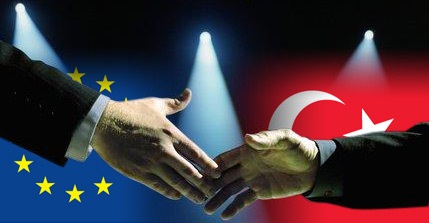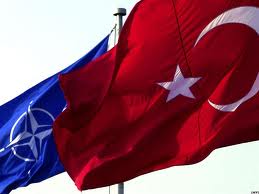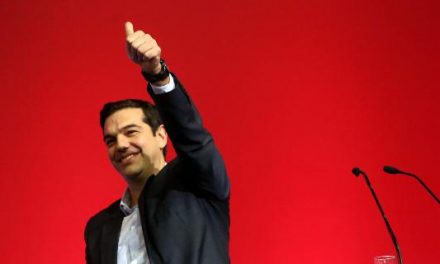Last year was a tough one for Turkey’s relations with the EU, and in particular with Germany, the most influential and powerful country in Europe.
Ties between Ankara and Berlin hit rock-bottom in 2017 as the countries clashed over several issues, ranging from Turkey’s constitutional referendum to German elections, from the detention of German citizens in Turkey to Berlin’s sheltering of people affiliated to the 2016 coup attempt and the terrorist Kurdistan Workers’ Party (PKK).
Needless to say, the tension between Ankara and European capitals started with the failed coup attempt in Turkey on July 15, 2016. The incident created a fertile ground for the crises of 2017, which escalated mutual distrust and conflicts between the sides and worsened diplomatic relations considerably. Germany and other EU countries banned Turkish officials from campaigning on their soil ahead of the April 2017 referendum regarding constitutional amendments.
Then, German politicians, during their elections, used the issue of terminating Turkey’s EU accession negotiations as a tool to garner votes and threatened Turkey with sanctions. Turkey also accused Germany of implementing “Nazi-style practices.” So the negative rhetoric adopted by both sides left the relations frosty at best. Unfortunately, the election year of 2017 was not good for either side.
However, the first day of 2018 raised hopes of reconciliation between Turkey and the EU in general and Germany in particular. The first signal came from the German side, when Foreign Minister Sigmar Gabriel stated that he hoped relations between the two countries could improve this year. Dutch Prime Minister Mark Rutte followed him with encouraging remarks regarding relations with Turkey. The reconciliation calls coming from European officials demonstrate that Turkey is still considered as an asset for the union. According to Gabriel, the EU needs to find “alternative” ways of creating closer cooperation and partnership with Turkey.
Tensions between Ankara and European capitals rose significantly in 2017, but positive new year signals from Germany and the Netherlands may open the door to vastly improved and mutually beneficial relations.
Sinem Cengiz
His Turkish counterpart Mevlut Cavusoglu agreed, saying that the time has come for Germany and Turkey to return to friendlier relations. Expecting ties with Germany to improve in 2018, Cavusoglu stated that Turkey had a “good dialogue” with Germany and that his German counterpart was a “personal friend.”
Turkish President Recep Tayyip Erdogan has also stated there is “no problem” with the EU and hopes for good relations with the bloc and Germany in particular. “There is an expression that I always use. We need to reduce our enemies and increase our friends. We don’t have a problem with Germany, the Netherlands or Belgium. It’s exactly the opposite; the leaders of those countries are old friends of mine,” Erdogan said. The Turkish president also underlined that he was pleased with the EU’s stance in opposing the US decision on Jerusalem.
After a year of tense relations between Turkey and the EU, Erdogan said that he may visit Germany, the Netherlands and the Vatican soon. Erdogan’s visit to France yesterday was crucial since Paris’ stance on Turkey is likely to shed light on those of other EU countries. Meanwhile, Cavusoglu and Gabriel are scheduled to meet in Germany today. These bilateral visits indicate there is a common, sincere approach to repair Turkish-EU ties as soon as possible.
Cavusoglu previously said the countries can have differences or even problems between the states or governments, but that should not affect the relationship between the people. This is so true. As a matter of fact, the tension between Berlin and Ankara favored neither side and it had economic, political and sociological effects.
Turks living in European countries and those with business in both countries were the ones who suffered the most from the political tit-for-tat. This new year spirit should be saved and further steps taken. First of all, both sides should make 2018 a year of reconciliation, while trying to ease tensions.
Secondly, both sides need to be self-critical. Germany and other European capitals should try to persuade Turkey of their sincerity in trying to understand Turkish concerns, and the EU should not become a scapegoat in any problem between Turkey and a European country. It should be acknowledged that a lack of progress in the EU accession process has negative impacts for both sides.
Thirdly, the EU should regain the support of the Turkish people regarding Ankara’s proposed membership of the union. In a recent poll, when Turks were asked if they wanted Turkey to join the EU, 78.8 percent said yes, while when asked would the EU make Turkey a member, only 30 percent said yes, according to Turkish Parliament’s Foreign Affairs Committee head Volkan Bozkir, who added that these answers reflected both hope and disappointment.
Germany is one of Turkey’s main partners in trade and military support. Although the relationship continues to have its ups and downs, the reality is that Turkey and Germany need each other. Turkey’s continued goal is to become an EU member state, although full membership does not seem possible even in the distant future.
However, Ankara needs Germany’s support if it ever wants to achieve that goal. In the same vein, Germany needs its military bases in Turkey, which is a strategic geographic crossroads, in order to maintain its strong presence in the Middle East. In an unstable environment, both Turkey and Germany should leave their problems behind and avoid creating grounds for new crises. At the end of the day, the improvement in Turkish-German relations will be a win-win situation for both sides.
• Sinem Cengiz is a Turkish political analyst who specializes in Turkey’s relations with the Middle East.



















